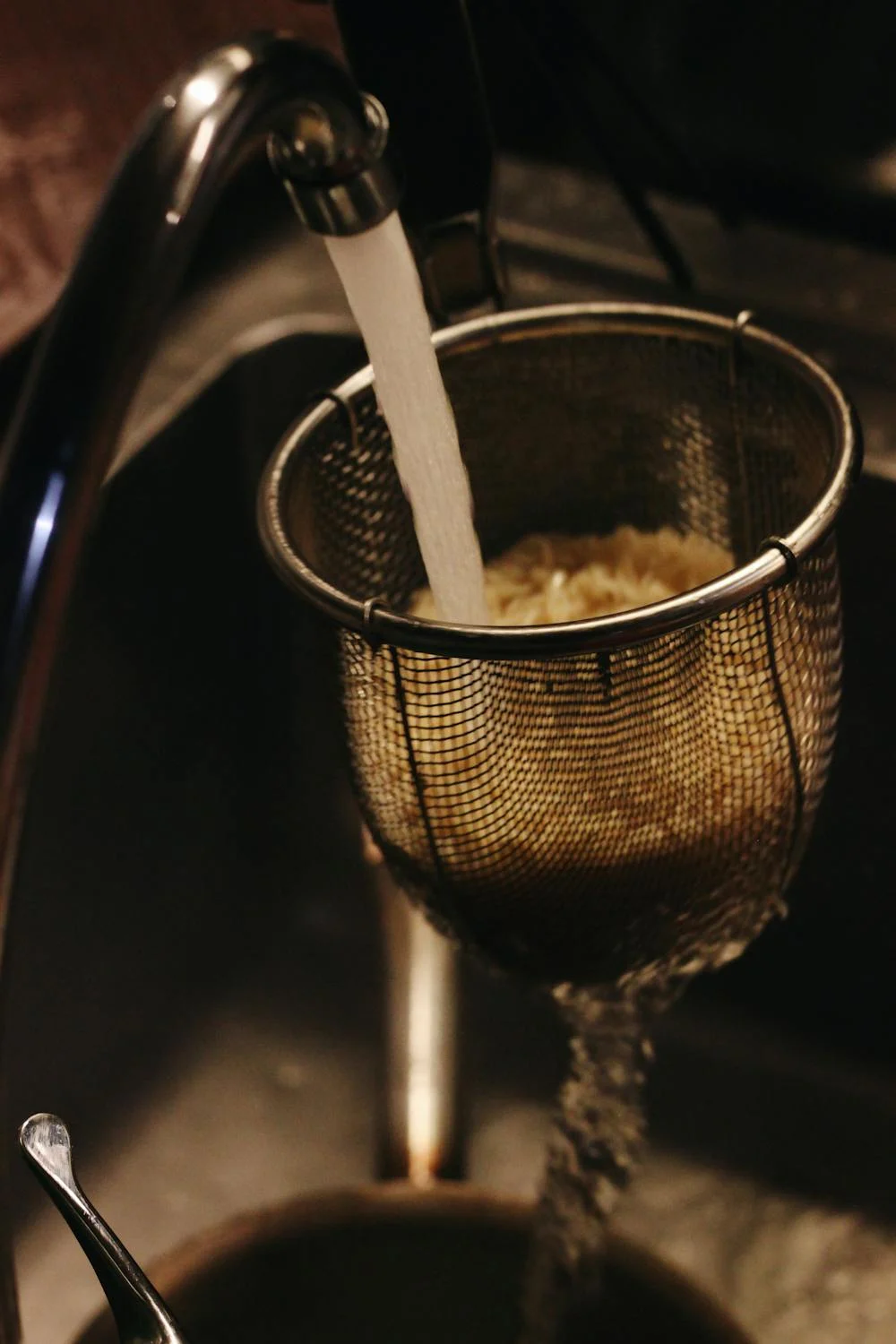Effective Ways to Unclog Your Sewer Line: DIY Tips and Cost Breakdown
A clogged sewer line can disrupt daily life and lead to costly repairs if not addressed promptly. This essential pipe carries wastewater from your home to the municipal treatment facility, and when it gets blocked, drains can slow down or stop entirely. Understanding how to effectively unclog a sewer line can save homeowners time and money while preventing further damage.
There are several methods to tackle this issue, from simple DIY techniques to professional interventions. Home remedies like baking soda and vinegar can often work wonders, while more complex issues may require mechanical or hydraulic cleaning methods. Knowing the right approach to take can make all the difference in restoring your plumbing system’s functionality.
Signs of a Clogged Sewer Line
Recognizing the signs of a clogged sewer line is crucial for maintaining an efficient plumbing system. Timely identification of these indicators can prevent further damage and costly repairs.
Multiple Fixtures Backing Up
Noticeable backups in multiple fixtures often signal a main sewer line clog. If a toilet flush leads to water rising in a bathtub or sink, a blockage in the main system likely exists. Frequent backups in different drains indicate that the issue isn’t limited to a single fixture but affects the entire plumbing system.
Bad Odors and Gurgling Sounds
Unpleasant odors and gurgling sounds from drains serve as strong indicators of sewer line issues. Odors occur due to stagnant wastewater backing up into the home, while gurgling noises result from air escaping through the blockage. Both signs suggest that wastewater flow is disrupted, necessitating immediate attention.
Slow-Draining Sinks and Toilets
Slow-draining sinks and toilets frequently point to a bigger problem within the sewer line. If multiple fixtures drain slowly, it usually signifies a partial or complete clog. Prompt evaluation of the entire sewer system is necessary to prevent more severe consequences, such as flooding or extensive damage.
For effective solutions, contact Integrity Services and Plumbing. Professionals can help diagnose and resolve sewer line issues quickly. Visit Integrity Plumbing for more information. Additionally, explore effective cleaning options such as best chemical drain cleaners to address minor clogs.
Common Causes of Sewer Line Clogs

Understanding the common causes of sewer line clogs helps in preventing future issues and maintaining a functional plumbing system.
Tree Roots
Tree roots frequently enter aging pipes, especially those made from porous materials like clay. As roots grow, they seek out moisture and nutrients found in sewer lines. These invasive roots can infiltrate small cracks and loose joints. Over time, as their size increases, they can lead to significant clogs or even break the pipes. Homeowners with trees or shrubs nearby should regularly inspect their sewer systems for early signs of root intrusion.
Excess Waste and Debris
Excess waste and debris often accumulate in sewer lines due to improper disposal practices. Items such as paper towels, hygiene products, and cooking grease do not break down easily and can contribute to blockages. Clogs can develop quickly when solid waste remains trapped in the pipes, especially in bends and connections. Regularly educating household members on what can be flushed or washed down drains greatly reduces the risk of severe clogs.
Aging Pipes
Aging pipes present significant challenges in plumbing systems. Older pipes, particularly those made from materials like clay or cast iron, often develop cracks and fractures as they age. Environmental factors such as shifting soil, ground movement, or heavy aboveground traffic put additional stress on these pipes. Inspections of older sewer systems can identify weaknesses early on and facilitate necessary repairs before major issues arise.
For professional assistance with sewer line clogs, contact Integrity Services and Plumbing. Their expert team can diagnose and resolve issues quickly. Visit Integrity Services and Plumbing for more information.

DIY Methods to Unclog a Sewer Line
Addressing a clogged sewer line effectively can often save time and money. Several DIY methods exist for homeowners to rectify minor clogs before seeking professional assistance.
At-Home Remedies
Common household items can serve as effective remedies for blocking issues. Baking soda and vinegar create a natural cleaning solution. Pouring one cup of baking soda followed by one cup of vinegar into the drain helps dissolve buildup. After a waiting period of about 30 minutes, flushing the drain with hot water typically allows for enhanced clearing. Another option involves using boiling water alone. Pouring boiling water down the drain can help loosen and flush away grease or sludge.
Using a Snake or Drain Auger
Employing a plumbing snake or drain auger provides a direct approach for severe blockages. Insert the cable into the drain until resistance indicates a clog. Rotating the snake allows it to catch and remove debris. The process requires care; too much force can cause damage to pipes. After clearing the blockage, running water through the drain ensures that no remaining debris persists. Homemade snake alternatives, like a straightened coat hanger, can also be effective for minor clogs. Following the removal, it’s advisable to perform a thorough clean to maintain optimal flow.
Chemical Solutions
Chemical drain cleaners offer a quick alternative for tough clogs but require caution. Commercial products often contain potent acids or bases designed to dissolve blockages. Selecting the right chemical is crucial; for instance, bleach-based cleaners target organic debris, while copper sulfate-based options work effectively against root infiltration. Always follow manufacturer instructions regarding safety and environmental concerns. Allowing chemicals to act for at least 15 minutes before rinsing with hot water ensures effective clearing. For more information about chemical drain cleaner options, refer to CNET’s guide.
For persistent clogs or severe plumbing issues, consulting professionals like Integrity Services and Plumbing can provide the necessary expertise to rest assured your sewer systems operate correctly.
When to Hire a Professional Plumber
Addressing sewer line issues promptly is crucial for maintaining a fully functioning plumbing system. Knowing when to consult a professional plumber ensures swift resolution and prevents further damage.
Signs You Need Expert Help
Several indicators signal the necessity for professional assistance. These signs include:
- Multiple fixture backups: If toilets, showers, and sinks back up simultaneously, a main sewer line issue is likely.
- Pooling water: Water accumulation around drains or floors hints at significant clogs within the sewer line.
- Bad odors: Foul smells emanating from drains often indicate a backup or deteriorating sewer line.
- Gurgling sounds: Unusual noises from pipes suggest air trapped in the system, often linked to obstructions.
- Slow-draining fixtures: Gradual drainage highlights potential blockages needing expert evaluation.
Early detection of these symptoms prevents costly repairs and water damage.
Benefits of Professional Cleaning
Employing a professional plumber offers several advantages, including:
- Accurate diagnosis: Professionals use tools, such as mini sewer inspection cameras, to precisely identify the clog’s location.
- Effective resolution: Experts handle clogs with techniques that safeguard sewer lines, unlike some DIY methods that can worsen the issue.
- Time savings: Professionals efficiently resolve complex problems, allowing homeowners to focus on other responsibilities.
- Long-term solutions: Hiring an experienced plumber ensures the installation of preventive measures, minimizing future clogs.
Acting quickly and engaging with professionals like Integrity Services and Plumbing streamlines the repair process. For reliable service, visit Integrity Services and Plumbing today.
For additional household solutions, explore the best chemical drain cleaners available on the market.
Cost of Unclogging a Sewer Line
Costs associated with unclogging a sewer line vary significantly based on the chosen method. Understanding these costs helps homeowners make informed decisions when dealing with sewer line issues.
Average Costs by Method
Several methods exist for unclogging a sewer line, each with varying average costs:
| Method | Average Cost (Labor Included) |
|---|---|
| Chemical Cleaning | $75 – $300 |
| Snaking | $100 – $500 |
| Rodding | $150 – $600 |
| Hydro Jetting | $350 – $600 |
| Section Replacement | $50 – $250 per linear foot |
Chemical cleaning offers the lowest initial expense, while hydro jetting typically proves effective for larger or more persistent clogs. Replacement of damaged sections incurs higher costs, depending on the necessary repairs.
Factors Affecting Total Cost
Several factors influence the total cost of unclogging a sewer line:
- Severity of the Clog: More severe clogs often require advanced techniques and thus incur higher fees.
- Number of Clogs: Multiple clogs increase diagnostics and labor, increasing final costs.
- Distance of the Clog: A clog deeper in the plumbing may necessitate additional time and equipment.
- Location of the Property: Geographic location may determine service fees charged by local professionals.
- Pipe Condition: Older pipes or those in disrepair may complicate the unclogging process further.
Homeowners facing sewer line issues should consider these factors when seeking solutions. For reliable service, contact Integrity Services and Plumbing for professional assistance. Explore their offerings at Integrity Services and Plumbing. For information on effective chemical drain cleaners, visit CNET’s Guide.
Preventative Measures for Future Clogs
Homeowners can implement several strategies to prevent future sewer line clogs. These measures help maintain the effectiveness of the plumbing system.
Regular Maintenance Tips

- Use Sink Strainers: Install sink strainers to trap food waste effectively in kitchen sinks. This reduces the chances of food debris entering the pipes.
- Dispose of Cooking Oils Properly: Discard cooking fats and oils in sealed containers instead of pouring them down the drain. Doing so minimizes greasy buildup within the plumbing.
- Know Your Pipe Location: Identify where sewer pipes are located, and avoid planting trees nearby to prevent root intrusion, which can lead to significant blockages.
- Limit Toilet Paper Use: Flush only septic-safe toilet paper and avoid excessive amounts, particularly with low-flow toilets. Large quantities can cause backups.
- Remove Weeds: Regularly clear aggressive weeds near sewer lines, as they can damage pipes over time. Routine yard maintenance can significantly reduce risks.
- Schedule Professional Inspections: Have a professional inspect and clean the sewer line approximately every 18 to 22 months if the home is under 40 years old. Homes older than this may require more frequent cleanings.
Landscaping Considerations
- Select Appropriate Plants: Choose plants with shallow root systems for landscaping near sewer lines. Deep-rooted trees can cause root intrusion, leading to severe clogs.
- Maintain Distance: Position trees and large shrubs at a safe distance from sewer lines. This practice prevents roots from growing toward pipes.
- Monitor Soil Conditions: Keep an eye on soil moisture levels. Too much water can saturate the ground and affect the integrity of sewer lines, potentially leading to collapses.
- Install Barriers: Consider implementing root barriers during landscaping projects. These barriers help redirect root growth away from sewer lines, reducing the chances of obstructions.
- Plan for Drainage: Ensure the landscape slopes away from the home to facilitate proper drainage. This prevents excess water from pooling near plumbing lines.
Implementing these preventative measures significantly reduces the risk of future sewer line clogs. For professional help with inspections or cleaning, contact Integrity Services and Plumbing at Integrity Plumbing Texas. Explore the best chemical drain cleaners here for additional support in maintaining your plumbing.
Conclusion
Addressing a clogged sewer line promptly is essential for maintaining a functional plumbing system. Homeowners should stay vigilant for warning signs and act quickly to prevent further damage. Whether opting for DIY methods or seeking professional help, understanding the best approach can save time and money.
Preventative measures play a crucial role in avoiding future clogs, making it important to adopt good disposal practices and schedule regular inspections. By taking these steps, homeowners can ensure their sewer lines remain clear and efficient, ultimately protecting their property and peace of mind.
Frequently Asked Questions
What are the signs of a clogged sewer line?
Common signs of a clogged sewer line include multiple fixture backups, slow-draining sinks and toilets, gurgling sounds from drains, and bad odors. If you notice these symptoms, it’s crucial to address the issue quickly to prevent further damage to your plumbing system.
How can I unclog my sewer line at home?
You can try several DIY methods to unclog your sewer line, such as using a mixture of baking soda and vinegar, pouring boiling water down the drain, or using a plumbing snake. For severe blockages, seek professional help to avoid damaging your pipes.
When should I call a plumber for a clogged sewer line?
You should call a plumber if you experience persistent backups in multiple fixtures, bad odors, or if DIY methods do not resolve the issue. Professional plumbers can provide accurate diagnoses and effective solutions for your plumbing problems.
How much does it cost to unclog a sewer line?
The cost to unclog a sewer line varies widely depending on the method used. On average, chemical cleaning costs $75 – $300, snaking ranges from $100 – $500, and hydro jetting can be between $350 – $600. Factors like severity and location influence final costs.
Why are tree roots a problem for sewer lines?
Tree roots can infiltrate aging pipes, causing significant clogs and blockages in sewer lines. These intrusions occur as the roots seek moisture, leading to potential costly repairs if not addressed quickly. Regular inspections can help identify and mitigate this issue.
Are chemical drain cleaners safe to use?
Chemical drain cleaners can be effective for minor clogs, but they may also damage pipes if not used properly. It’s essential to read the labels, follow safety instructions, and consider alternatives like mechanical methods for tougher blockages.
How can I prevent future sewer line clogs?
To prevent future sewer line clogs, use sink strainers, dispose of cooking oils properly, and schedule regular professional inspections. Additionally, be cautious with landscaping choices, ensuring plants are not too close to sewer lines to minimize root intrusion risks.
What should I do if my sewer line is backing up?
If your sewer line is backing up, immediately stop using water fixtures and check for signs of blockage. Contact a professional plumber like Integrity Services and Plumbing to diagnose and resolve the issue promptly to avoid further damage.

